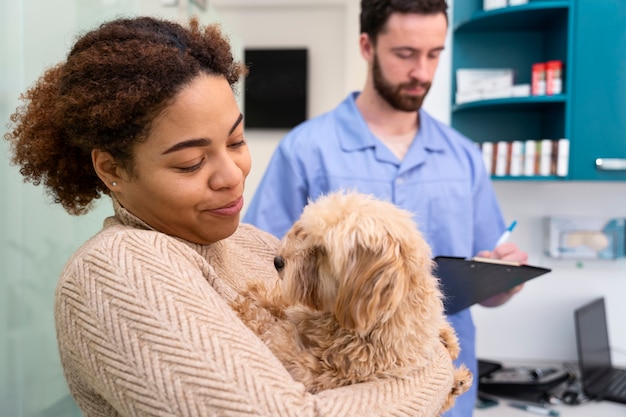How to Spot Pet Heatstroke: Urgent Signs and Next Steps

How to Spot Pet Heatstroke: Urgent Signs and Next Steps
Indiana’s summer days can bring not only fun and sunshine, but also dangerous risks for pets—especially when temperatures soar in August. Every year, veterinary professionals at VetCheck Pet Urgent Care Center - Fishers see dogs and cats suffering from heatstroke after being outdoors, confined in a hot car, or even while simply exercising on a warm day. Knowing how to recognize pet heatstroke symptoms quickly can make the difference between a full recovery and a life-threatening situation. This guide will help you spot early warning signs, understand why heatstroke happens, and know exactly when to seek emergency care for your pet in Fishers and surrounding communities.
At VetCheck Pet Urgent Care Center - Fishers, located at 14069 Mundy Drive, Fishers, IN 46038, we provide immediate access to life-saving care—walk-ins are always welcome, with no appointment needed. If you are worried about pet heatstroke symptoms or need urgent pet care, you can count on our compassionate veterinary team to be there when other clinics may be closed or unavailable. This article will cover the urgent signs of heatstroke, why it occurs, how it is treated, and the steps you should take to protect your pet this summer. We will also explain when emergency veterinary care is absolutely necessary, and how you can find an "emergency vet near me" in Fishers whenever you need help.
Recognizing Pet Heatstroke Symptoms: What Every Indiana Pet Owner Should Watch For
Heatstroke in pets is always a medical emergency. Acting promptly when you notice the symptoms can mean the difference between life and death. Key signs of pet heatstroke symptoms include rapid or heavy panting, bright red or dark gums, excessive drooling, and lethargy. Some pets may collapse, vomit, or have diarrhea—these are especially urgent signs that something is seriously wrong. Other warning indicators are disorientation, stumbling, seizures, or an elevated heart rate.
It is important for pet owners in Fishers and surrounding communities to remember that heatstroke can develop quickly, sometimes in less than 30 minutes. Pets left in parked cars, those who are exercised vigorously in hot weather, or animals with thick coats, flat faces, or underlying health conditions are at greater risk. If you notice any of these symptoms, you should seek emergency veterinary care right away, as waiting can lead to organ failure or worse.
The Difference Between Mild Overheating and True Heatstroke
While pets may appear tired after exercise or play, true heatstroke involves much more severe symptoms. Mild overheating might cause your pet to slow down or seek shade, but when you see vomiting, collapse, or gum color changes, this is a red flag for heatstroke. The local climate and humidity in central Indiana can make these situations even more dangerous, as pets are less able to cool themselves naturally when the air is muggy.
Why Does Heatstroke Happen in Pets? Understanding the Causes in Fishers
Heatstroke occurs when a pet’s internal temperature rises beyond a safe range and their body cannot cool down through panting or sweating. During Indiana’s humid summers, this risk increases, especially for pets left in hot cars or outdoors during peak sun hours. Heatstroke in pets in Fishers often results from situations such as outdoor play without water or shade, being confined in a vehicle, vigorous exercise during the hottest part of the day, or even walks on hot pavement that prevent heat from dissipating through their paws.
Certain pets are at even higher risk. Flat-faced breeds like Bulldogs, Pugs, and Persians have restricted airways, making them less efficient at cooling themselves. Older pets, puppies, overweight animals, and those with chronic illnesses are also more vulnerable. Even a short trip to the store with your pet left in the car can be disastrous, as temperatures inside vehicles rise rapidly—even with the windows cracked. For more information on urgent symptoms and dangerous exposures, our toxicology and pet poison control services can help pet owners understand and respond to emergencies, including heat-related crises.
Emergency Treatment for Pet Heatstroke: What to Expect When You Arrive at VetCheck
When your pet arrives at an urgent care vet in Fishers, our veterinary team acts quickly to stabilize and cool your pet. Immediate steps involve moving your pet to a cool environment and starting controlled cooling with tepid water or wet towels. We never use ice water, as that can cause blood vessel constriction and worsen internal damage. Oxygen therapy may be provided, along with intravenous fluids to correct dehydration and support organ function. Additional treatment approaches involve medications to control seizures or vomiting, and close monitoring for complications such as kidney damage, blood clotting issues, or gastrointestinal distress.
In some situations, pets may require in-house diagnostics such as bloodwork, urinalysis, or X-rays to assess the severity of organ involvement. Full or partial day hospitalization is often recommended for observation and continued supportive care. If your pet is showing signs of vomiting or diarrhea as part of their heatstroke symptoms, tailored treatment for gastrointestinal upset is also available through our vomit and diarrhea management services. All these steps are provided on-site at our Fishers clinic so your pet receives immediate, expert care without delay.
What You Should—and Should Not—Do at Home Before Heading to the Clinic
If you suspect your pet is suffering from heatstroke, move them to a cool area right away and offer small sips of water. Dampen their fur with room-temperature water, focusing on the paws, belly, and neck. Avoid using ice or ice-cold water, as this can cause harmful shock to their system. Never force your pet to drink or eat if they are vomiting, unresponsive, or unable to swallow. Do not delay—your priority is to get your pet to an urgent care vet in Fishers as quickly as possible.
Preventing Pet Heatstroke in Fishers: Practical Steps for a Safe Summer
While heatstroke can be life-threatening, it is almost always preventable. Pet owners in Fishers can take several steps to minimize risk during the hottest months. Ensure your pet always has access to fresh, cool water and shade when outdoors, and avoid outdoor activity during peak temperature hours. Exercise should be limited to early morning or late evening, when the ground and air are cooler. For pets with thick coats, regular grooming can help reduce overheating.
Never leave your pet in a parked car, even for a few minutes. On an 80-degree day, the temperature inside a car can reach deadly levels in as little as 10 minutes. Be especially mindful of risk factors such as age, breed, and any pre-existing health conditions. Regular wellness examinations at our Fishers clinic can help detect vulnerabilities that make heatstroke more likely, and our team can guide you on safe activity levels for your pet.
When to Seek Emergency Pet Care for Heatstroke in Fishers
Knowing when to seek emergency pet care in Fishers is vital, as every minute counts in a heatstroke scenario. Immediate veterinary attention is required if your pet displays symptoms such as persistent panting, collapse, vomiting, unresponsiveness, or gum color changes. Additional warning signs that require urgent care include muscle tremors, seizures, or noticeable disorientation.
If your regular veterinarian is closed or you need help after hours, VetCheck Pet Urgent Care Center - Fishers is open for walk-in visits, with immediate care available. You do not need to make an appointment—our team is here to help whenever you notice pet heatstroke symptoms or other urgent health issues. For those searching for an "emergency veterinarian near me" or a "24-hour vet near me," our clinic provides the local expertise and swift response your pet deserves.
Supporting Your Pet’s Recovery and Monitoring for Complications
Even after successful emergency treatment, pets recovering from heatstroke may need ongoing monitoring for complications. Some pets develop kidney issues, clotting disorders, or pancreatitis following a severe heat episode. Our veterinarians may recommend additional bloodwork, rechecks, or monitoring for new symptoms in the days following your pet’s hospital stay. If your pet experienced vomiting or diarrhea, ongoing care may be needed to support digestive recovery. For more information on complications like pancreatitis, our pancreatitis care resources are available to provide further guidance.
Take Action Now: Protect Your Pet From Heatstroke in Fishers
Every summer, pets in Fishers and surrounding communities are at risk for dangerous heatstroke, but you have the power to protect your furry family members. Recognizing pet heatstroke symptoms early, taking preventive steps, and knowing when to seek emergency pet care can make all the difference. If you are searching for an "emergency vet near me," VetCheck Pet Urgent Care Center - Fishers is here with immediate support—walk-ins are always welcome, and no appointment is needed.
Our veterinary team is committed to providing compassionate, expert care for your pet when you need it most. If you notice any warning signs or have concerns about your pet’s health in the heat, visit us at 14069 Mundy Drive, Fishers, IN 46038, or call us at (317) 572-7557. Remember, acting quickly and seeking emergency veterinary care in Fishers can save your pet’s life. We are proud to serve Fishers and surrounding communities, providing urgent care vet services whenever you need us most.
If you ever have questions or are unsure about your pet’s symptoms, our team is ready to help—your pet’s wellbeing is always our first priority.
This article is for informational purposes only and should not replace professional veterinary advice. If your pet is experiencing symptoms of heatstroke or any urgent health issue, seek immediate veterinary attention.



















